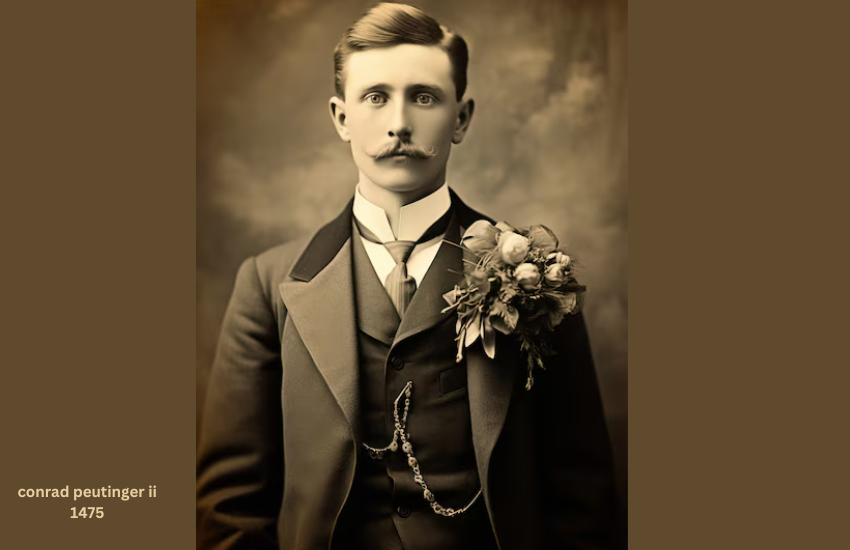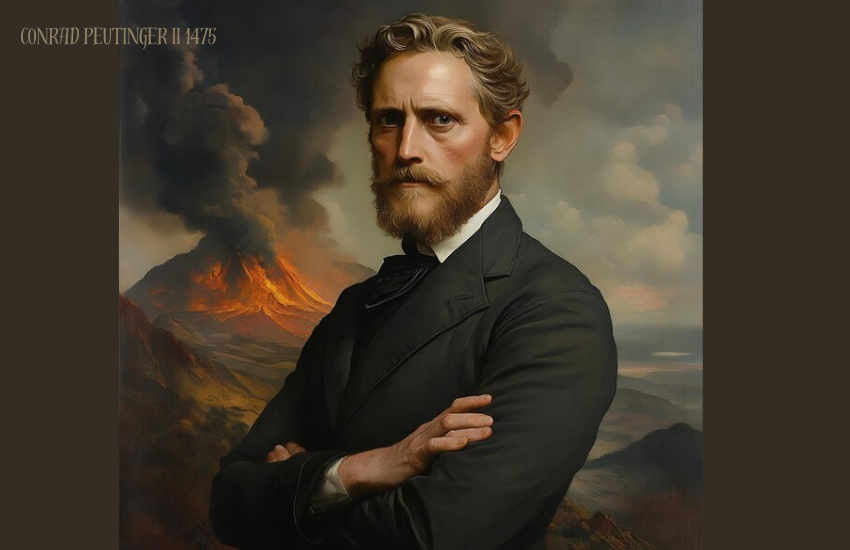Early Life
Education and Early Career
Peutinger’s education began at the local Latin school, where he demonstrated an early aptitude for learning. He later attended the University of Basel, studying law and the humanities. His academic excellence earned him recognition, paving the way for his entry into the legal profession and his initial career steps in the political arena of Augsburg.
Political Career
Entry into Politics
Key Political Roles
Over the years, Peutinger held several key political positions, including serving as the mayor of Augsburg. His tenure was marked by efforts to improve the city’s infrastructure and governance. His diplomatic acumen also saw him participate in important negotiations, both within the Holy Roman Empire and with foreign entities.
Contributions to Cartography
Peutinger Table (Tabula Peutingeriana)
One of Peutinger’s most renowned contributions is the Peutinger Table, a detailed Roman road map that he inherited and preserved. This ancient document, believed to date back to the 4th or 5th century, offers invaluable insights into the transportation network of the Roman Empire.
Significance
The Peutinger Table is not just a map but a historical artifact that has provided scholars with a wealth of information about Roman geography and infrastructure. Peutinger’s efforts in preserving and studying this map have cemented his place in the annals of cartography.

Humanism and Scholarship
Involvement in Humanist Circles
Peutinger was an active participant in the humanist circles of his time. He corresponded with many leading intellectuals and was a patron of the arts and sciences. His home in Augsburg became a hub for scholars, artists, and thinkers.
Scholarly Works
Among Peutinger’s scholarly contributions are numerous essays and treatises on law, history, and philology. His works reflect a deep engagement with classical texts and a commitment to the principles of Renaissance humanism.
Associations and Influence
Relationship with Contemporaries
Peutinger maintained relationships with many notable figures of the Renaissance, including Erasmus of Rotterdam and Philipp Melanchthon. These associations enriched his intellectual life and expanded his influence across Europe.
Influence on Others
Peutinger’s influence extended beyond his immediate circle. His ideas and works inspired subsequent generations of scholars and politicians, contributing to the broader intellectual and cultural currents of the Renaissance.
Legacy and Memorials
Enduring Impact
Conrad Peutinger’s legacy is evident in the fields of cartography, politics, and humanist scholarship. His work has had a lasting impact on the way these disciplines have developed over the centuries.
Memorials and Honors
Peutinger’s contributions have been commemorated in various ways, including monuments in Augsburg and the naming of streets and institutions after him. These honors reflect the enduring respect and admiration for his achievements.
Personal Life
Marriage and Family
Peutinger married Margarete Welser, a member of a prominent Augsburg family. Their marriage was both a personal union and a strategic alliance that reinforced Peutinger’s social and political standing.
Personal Interests
Beyond his professional and scholarly pursuits, Peutinger had a keen interest in collecting rare books and manuscripts. His extensive library was one of the most impressive private collections of his time.
Challenges and Controversies
Political and Social Challenges
Peutinger’s career was not without challenges. He faced political opposition and social unrest during his tenure in public office. These difficulties tested his resilience and leadership abilities.
Controversial Issues
Some of Peutinger’s actions and decisions were controversial, attracting criticism from his contemporaries. These controversies provide a fuller picture of his complex and multifaceted character.
Final Years and Death
Later Life
In his later years, Peutinger continued to engage in scholarly and civic activities. He remained a respected figure in Augsburg and maintained his intellectual pursuits until the end of his life.
Death and Burial
Conrad Peutinger II passed away in 1547. He was buried in Augsburg, and his funeral was attended by many who admired and respected his contributions to their city and to the broader intellectual landscape.
Peutinger and the Renaissance
Role in the Renaissance
Peutinger played a crucial role in the Renaissance, embodying the era’s ideals of learning and humanism. His work bridged the medieval and modern worlds, contributing to the cultural and intellectual revival of his time.
Contributions to Renaissance Thought
Through his scholarly works and political actions, Peutinger contributed to the spread and development of Renaissance thought. His commitment to classical learning and civic humanism left a lasting imprint on the period.
Peutinger’s Publications and Works
Major Publications
Peutinger’s major publications include treatises on law, history, and classical studies. These works were widely read and respected, reflecting his intellectual rigor and breadth of knowledge.
Analysis of Works
A detailed analysis of Peutinger’s works reveals a scholar deeply engaged with the texts and ideas of antiquity. His writings offer insights into his thought processes and the intellectual currents of his time.
Impact on Future Generations
Influence on Subsequent Scholars
Peutinger’s influence extended to subsequent generations of scholars who drew on his works and ideas. His preservation of classical texts and his own contributions to scholarship have been invaluable resources for later researchers.
Continuing Relevance
Even today, Peutinger’s work remains relevant. His contributions to cartography, humanism, and scholarship continue to be studied and appreciated by historians and scholars around the world.
Peutinger’s Collection and Preservation
Preservation of Works
Peutinger’s efforts in collecting and preserving rare texts were instrumental in ensuring the survival of many important works. His collection has been a treasure trove for historians and researchers.
Influence on Libraries and Archives
Peutinger’s legacy in this area is also seen in the development of modern libraries and archives. His methods of collection and preservation have influenced how historical documents are curated and maintained.

Critical Reception and Historiography
Historical Reception
Peutinger’s contributions were recognized and celebrated in his own time. His contemporaries acknowledged his intellectual prowess and his impact on various fields.
Modern Interpretations
Modern historians continue to study and interpret Peutinger’s works, providing new insights into his life and legacy. These interpretations help us understand his enduring significance and the context of his achievements.
Frequently Asked Questions (FAQs)
1. Who was Conrad Peutinger II?
Conrad Peutinger II was a German humanist, lawyer, politician, and scholar known for his contributions to cartography, especially the Peutinger Table, and his involvement in Renaissance humanism.
What is the Peutinger Table?
The Peutinger Table is an ancient Roman map preserved by Conrad Peutinger. It details the road network of the Roman Empire and is a significant historical document.
What were Peutinger’s major contributions to humanism?
Peutinger contributed to humanism through his scholarly works, his involvement in humanist circles, and his efforts in preserving and promoting classical texts.
How did Peutinger influence the Renaissance?
Peutinger influenced the Renaissance by embodying its ideals of learning and humanism, contributing to scholarship, and participating in the intellectual revival of the period.
What was Peutinger’s role in politics?
Peutinger held several key political positions in Augsburg, including serving as mayor. He was involved in improving the city’s governance and infrastructure and played a role in important diplomatic negotiations.
How has Peutinger’s legacy been preserved?
Peutinger’s legacy has been preserved through his publications, the Peutinger Table, and the recognition and honors he received. His work continues to be studied and appreciated by scholars today.

